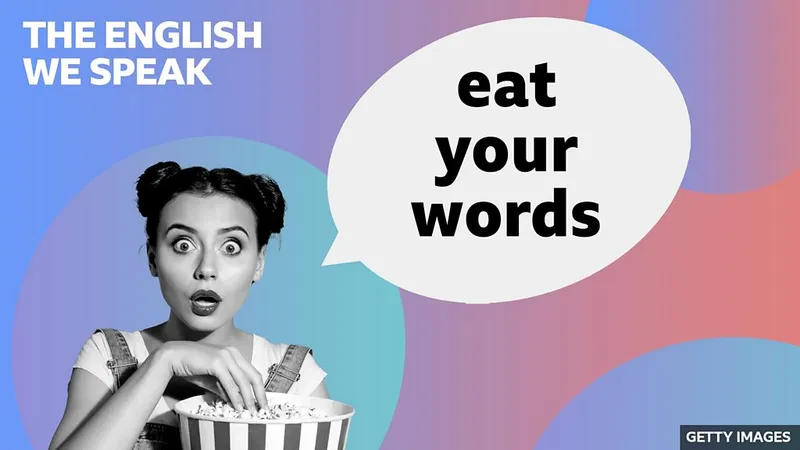Feifei Hello and welcome to The English We Speak, I’m Feifei…
Rob …and I’m Rob. Hey, Feifei, someone told me that you’ve been baking.
Feifei Yes, I have. I love baking, and I know you like eating cakes!
Rob Yep, that’s great to hear – will there be anything for me to try, maybe?
Feifei Maybe! I’ve been experimenting with a new vegan recipe that involves making a cake with cabbage and beetroot.
Rob Cabbage and beetroot! Yuk! That sounds disgusting – if you want someone to try it, don’t ask me!
Feifei Oh, Rob, you’ll eat your words.
Rob Eat my words?! I’m sure my words will taste better than a cabbage and beetroot cake.
Feifei No, Rob! I mean you’ll regret saying that. The phrase ‘eat your words’ means you will have to admit you were wrong about something you have said. And here are some more examples of people ‘eating their words’.
Examples You said my coffee business wouldn’t work, but you’ll have to eat your words – it’s been a huge success.
Despite what I said, I’ll have to eat my words because my sister is now happily married to her first boyfriend.
You said I’d fail the exam, but I ended up with an A+ - you’ll have to eat your words now.
Feifei This is The English We Speak from BBC Learning English, and I’m telling Rob he’ll be eating his words about my cooking – the phrase means to admit you’re wrong about something you have said. So, Rob, how about trying my cake before you decide you don’t like it?
Rob OK, Feifei, but I know I won’t like it.
Feifei Here, try this.
Rob Are you sure you used cabbage and beetroot? This tastes like a normal cake.
Feifei It is a normal cake, Rob - and I assume you like it?
Rob Mmm, I must admit, I do. You know, it has inspired me to get baking – I’m off.
Feifei Where are you going?
Rob To bake a ‘word cake’ – so I can literally eat my words!
Feifei Ha ha. Good luck. Bye.
Rob Bye.
